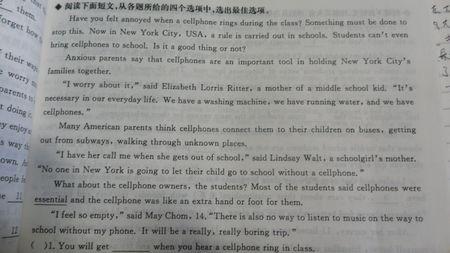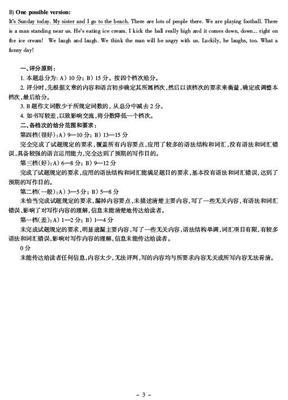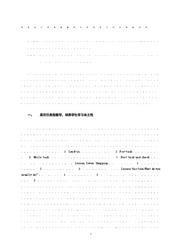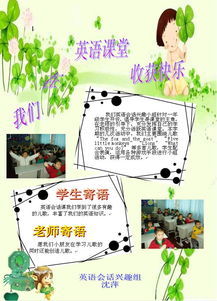英语美文题材丰富,涉及面广,大多蕴涵人生哲理。本文是小编整理的中学生英语经典短文,欢迎阅读。

篇1:中学生英语经典短文
My Hometown
Welcome to my hometown! Haimen is my hometown. It is a modern and busy town. It has a long history. There are many big supermarkets, beautiful gardens and good factories here. It is very easy to go shopping. You can see green hills, big trees and nice flowers. There are many restaurants in Haimen. You can enjoy Haimen goat. It tastes very delicious. Many visitors come here to enjoy it.
There are many good places to visit. There is a park and a big Shopping Mall. You can see films in Renmin Theatre. My school is one of the best schools in my hometown. It is on Changjiang Road. It is very beautiful. I hope you can come and visit soon.
篇2:中学生英语经典短文
My Family And My Flat
I live in a flat in a building. The building is very modern. There are about ten floors and I live on the top floor. I think my flat is very wonderful. The dining room is next to the kitchen. We always have dinner there, and my mother often cooks some delicious food for us. I can’t cook, but I often help Mum wash the dishes. Sometimes my friends come to my flat and they teach me how to cook. So now, I can cook something for my family. I like the sofa in my sitting room. It is very comfortable and it is purple. What a nice colour! The bathroom with a bath and a shower has a mirror. It is in the shape of star. There are four members in my family. They are my father, my mother, my brother and I. My parents work hard. They are very tired and I think they should have a good sleep. So the bedroom is the best place. My younger brother is only six years old. I love him even though he troubles me some times. In my bedroom, there are lots of posters of Angela on the wall. Angela is my favourite super star. She is beautiful. There is a garden in the district. You can go walking there. I also want to tell you about my dream home. It is near a sea. It’s made of wood. Maybe that will come true.
篇3:中学生英语经典短文
The Language of Music
A painter hangs his or her finished pictures on a wall, and everyone can see it. A composer writes a work, but no one can hear it until it is performed. Professional singers and players have great responsibilities, for the composer is utterly dependent on them. A student of music needs as long and as arduous a training to become a performer as a medical student needs to become a doctor. Most training is concerned with technique, for musicians have to have the muscular proficiency of an athlete or a ballet dancer. Singers practice breathing every day, as their vocal chords would be inadequate without controlled muscular support. String players practice moving the fingers of the left hand up and down, while drawing the bow to and fro with the right arm—two entirely different movements.
Singers and instruments have to be able to get every note perfectly in tune. Pianists are spared this particular anxiety, for the notes are already there, waiting for them, and it is the piano tuner’s responsibility to tune the instrument for them. But they have their own difficulties; the hammers that hit the string have to be coaxed not to sound like percussion, and each overlapping tone has to sound clear.
This problem of getting clear texture is one that confronts student conductors: they have to learn to know every note of the music and how it should sound, and they have to aim at controlling these sound with fanatical but selfless authority.
Technique is of no use unless it is combined with musical knowledge and understanding. Great artists are those who are so thoroughly at home in the language of music that they can enjoy performing works written in any century.
 爱华网
爱华网



